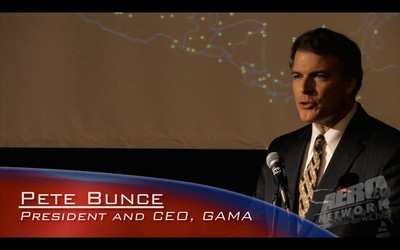Thu, Jan 29, 2009
Advertisement
More News
 NTSB Final Report: Dehavilland DHC-2 MK 1
NTSB Final Report: Dehavilland DHC-2 MK 1
During The Forced Landing, The Airplane’s Float Struts And Spreaderbars Collapsed Analysis: While en route to a remote fishing lodge in a float-equipped airplane, one of the >[...]
 Aero-News: Quote of the Day (10.29.25)
Aero-News: Quote of the Day (10.29.25)
"X-59 is a symbol of American ingenuity. The American spirit knows no bounds. It's part of our DNA – the desire to go farther, faster, and even quieter than anyone has ever g>[...]
 ANN's Daily Aero-Linx (10.29.25)
ANN's Daily Aero-Linx (10.29.25)
Aero Linx: The Honourable Company of Air Pilots The advancement of the public interest by the promotion of safety for all those who are employed in connection with or who travel by>[...]
 ANN's Daily Aero-Term (10.30.25): Minimum Friction Level
ANN's Daily Aero-Term (10.30.25): Minimum Friction Level
Minimum Friction Level The friction level specified in AC 150/5320-12, Measurement, Construction, and Maintenance of Skid Resistant Airport Pavement Surfaces, that represents the m>[...]
 ANN's Daily Aero-Linx (10.30.25)
ANN's Daily Aero-Linx (10.30.25)
Aero Linx: Aerospace Industries Association (AIA) For over 100 years, the American aerospace and defense industry has shaped the world around us. From the first flight to the moon >[...]
blog comments powered by Disqus




